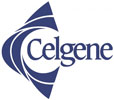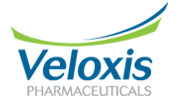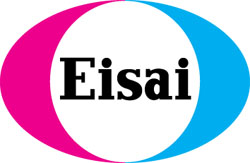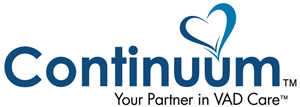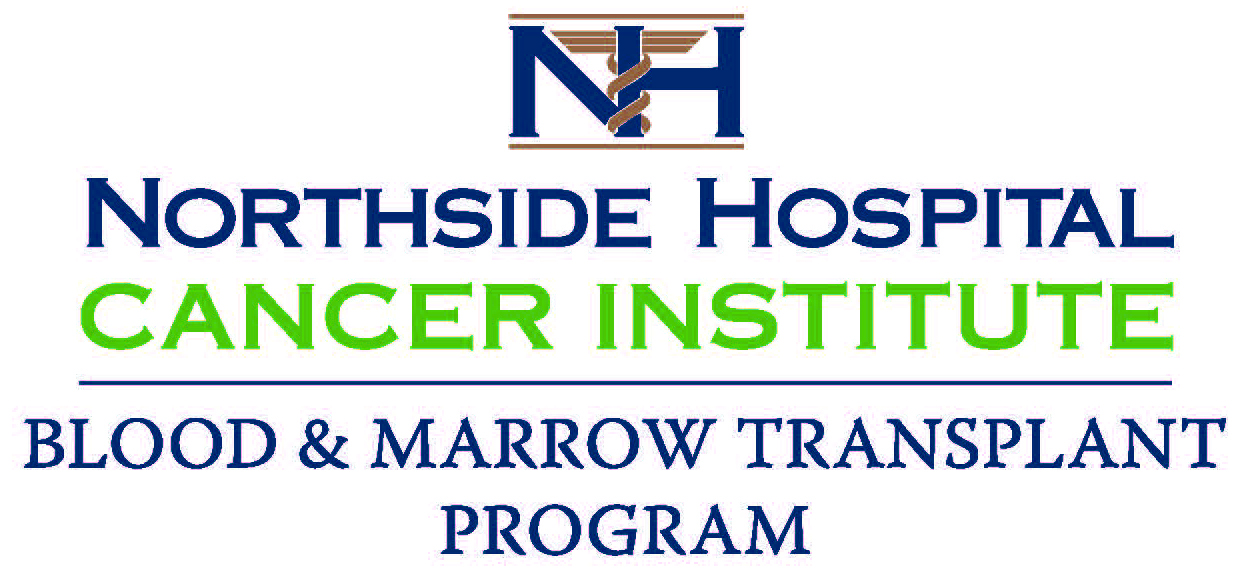
28th Annual National Conference
“This conference remains the best that I ever attend. The subject matter is timely, thought provoking and inspiring.” “This was a well-rounded conference with something for everyone, whether new to your job or enhancing existing knowledge.” “I go to my share of conferences and this is one that has moved with me throughout my career. It is well put together with timely topics. Excellent job!!!” | Registration fee: |
Why should you attend?
The Magic: The Annual National Conference isn’t like any other conference in the industry—it has a quality that can’t be described. It must be experienced in person. The atmosphere of the room, the camaraderie of the attendees, the unexpected “Aha!” moments during the presentations and the fun—we like to make learning fun.
The Faculty: It’s not about putting a “talking head” on the stage. It’s about searching for the perfect person to educate the audience. It’s asking currently practicing surgeons and physicians to take a break from their schedules and share their expertise with those lucky enough to be in the room. We invite the “rock stars” of health care so you can learn from the best!
The Accreditation: So. Many. Credits. (Refer to the Activity Summary [right] for a less ambiguous description of the many types and number of credits offered.)
Target Audience
Designed for the interprofessional health care team
Content has been developed by and for the health care team to promote collaborative practice in health care delivery by providing a broad range of topics for a variety of learners. The conference is designed for health care professionals who are interested in learning best practices for optimal patient/benefit management in the areas of: organ and blood/marrow transplantation; health and wellness; comorbid diseases; complex-medical-condition support; case management; and utilization management.
| Who attends? | |
|
|
Learning Objectives
After completion of this activity, the participant should be able to:
- Recognize the latest trends and advances in oncology, solid-organ and blood/marrow transplantation.
- Identify ways in which quality and value can be best measured in cancer care.
- Address some of the ethical considerations surrounding medical practices today, including end-of-life care.
- State emerging therapies in chimeric antigen receptor (CAR) T cells and in gene therapy for rare diseases.
- Identify factors contributing to the increase in the suicide rates in the U.S. and potential strategies that may be applied to reverse this troubling trend.
- Identify strategies to optimize diabetes management and cardiovascular care.
- Recognize the impact of incorporating a multidisciplinary approach for children with special health-care needs.
- Explain updates in transplant-related infectious diseases.
- Describe the changing paradigm in live-donor-liver transplant and with high-risk-transplant donors.
| Increase your company's visibility and create awareness about your products and services with our unique audience of case managers, medical directors, medical management and administrative staff representing influential national and regional payer, employer and managed care organizations by exhibiting at the "28th Annual National Conference." | |
In addition to exhibiting, there are several ways for you to connect with these attendees. We have dynamic promotional opportunities to help build and maintain business relationships and increase your company’s visibility among the 300–400 health care professionals in attendance. And we offer general conference support to give you the opportunity to contribute to the key goals of the Annual National Conference without exhibiting or providing promotional support. Click here to see who exhibited and/or sponsored at last year's conference. | |
Exhibitor and Supporter ResourcesExhibitor and Supporter Prospectus
OptumHealth Education gratefully acknowledges our supporters. Click on the organization's logo to be redirected to its website. Annual Conference Supporters Diamond
Gold
Silver | |||||||||||||||||
Event Supporters
| |
Event Promotional Supporter
Platinum
Gold
Silver

Hilton Minneapolis Information
The 28th Annual National Conference will be held at the Hilton Minneapolis, located in the heart of the city with great shopping, restaurants, museums and sporting venues just minutes away. Guest rooms are designed with comfort and convenience in mind, providing a place to unwind or to catch up on work. Stunning Minneapolis skyline views and the latest amenities provide class and comfort for creating that ultimate retreat.
Conference Attire
Suggested attire for the conference is business. Although every effort is made to maintain a comfortable learning environment, meeting room temperatures can fluctuate greatly and may be difficult to control. Since it is difficult to adjust meeting room temperatures to suit individual preferences, please bring a sweater or jacket, and/or wear layered clothing to ensure your comfort.
Travel
Parking and Ground Transportation
Maps and directions: Click here for directions to the Hilton Minneapolis.
Parking rates and hotel policies: Click here for parking rates, check in/out times and other hotel policies.
> UnitedHealth Group Employee Special Travel Instructions
| To Reserve Your Room |
Hotel reservations:
Online reservations
Call-in reservations: (888) 933-5363
To receive the conference discounted room rate, you must reserve your room by Tuesday, Oct. 8 and mention OptumHealth National Conference and Group Code OPT.
Hotel room rate and fee: $209 special group rate
A limited number of rooms are available at the Hilton Minneapolis for Sunday, Oct. 13 through Wednesday, Oct. 16 at the special conference rate of $209. This rate includes complimentary high-speed Internet access. The rate is per room, per night, and subject to prevailing state and local taxes. Individuals are responsible for room costs and fees.
Reservation deadline has been extended: Tuesday, Oct. 8, 2019, or when rooms sell out, whichever comes first. You are strongly encouraged to make your reservation before the group block is released on Oct. 8. Reservations received after Oct. 8, or after the room block is sold out, will be accepted on a space-available basis at the prevailing room rate.
Reservation cancellation deadline: To avoid a cancellation penalty equal to the room rate and tax for one night, your cancellation notice must be received by Hilton Minneapolis at least forty-eight (48) hours in advance of the arrival date.
Attention UnitedHealth Group, UnitedHealthcare, Optum Employees
To book your hotel stay: To reserve a room at the Hilton Minneapolis, please follow the reservation instructions listed above to receive the group discounted rate (do not use Concur for conference reservations).
To book your flight: Employees traveling for the 28th Annual National Conference are exempt from the pre-trip approval process. The Travel Request form is NOT required. To qualify, employees MUST book airline reservations directly with BCD Travel and reference Group #UHG100159. If you book through Concur, you will NOT receive the exemption. You will receive a declined message to cancel your reservation, and you must then have an approved Travel Request prior to booking.
- DO NOT BOOK through Concur
- Call BCD Travel Desk at 1-800-238-9047
• BCD Travel Business Hours are Monday–Friday 7 a.m.–6 p.m. Central Time - Reference Group # UHG100159
- After receiving your confirmation, verify that your name matches your valid ID.
- Double check dates, time and that airport information is correct. If changes need to be made, call the BCD Group Air Desk directly at 1-800-238-9047.
- Book air reservations by Thursday, Sept. 26, 2019.
Faculty and Planning Committee
Click here for a list of faculty and planning committee members.
Agenda
Printable Schedule-at-a-Glance (Updated: 10/08/2019)
Monday, Oct. 14
Tuesday, Oct. 15
Wednesday, Oct. 16
MONDAY, OCTOBER 14, 2019
Up to 5.0 continuing education credits available.
8:00 a.m. | Registration and Continental Breakfast |
9:00 a.m. | Welcome and Opening Remarks, Heidi Leenay, Vice President, OptumHealth Education |
9:30 a.m. | KEYNOTE ADDRESS—Live-Donor Liver Transplant: Changing the Paradigm, Abhinav Humar, MD, UPMC; Rina Kader, Living Liver Donor; and Wayne Livingston, Liver Transplant Recipient Live-donor liver transplantation (LDLT) has been perfected for children and adults with serious liver disease. Both a donor and a recipient of a live-donor liver transplant will highlight the benefits and potential complications of this life-saving surgery. The optimal time for a LDLT to maximize outcomes will also be discussed. Learning objectives:
|
10:30 a.m. | Break |
10:45 a.m. | Update in the Utilization of Blood/Marrow Transplant (BMT) and Emerging Diagnoses on the Horizon, Krishna Komanduri, MD, Sylvester Comprehensive Cancer Center, University of Miami Health System The number of BMTs performed every year in the U.S. has markedly increased over the last two decades and doubled between 2000 and 2015. Factors that contribute to the rising incidence of BMTs include expansion of populations in which BMT is most commonly used, increases in unrelated-donor registries and cord blood inventories, improved outcomes in unrelated-donor transplants, and higher rates of BMT with less-intense conditioning regimens in older patients. This session will discuss contributing factors to the increase in BMT utilization and emerging indications. Learning objectives:
|
11:30 a.m. | The Increase in Suicide Across the U.S., Jill Harkavy-Friedman, PhD, American Society for Suicide Prevention Suicide is the 10th-leading cause of death in the United States. It is the second-leading cause of death among people ages 10–34 and the fourth-leading cause among people ages 35–54. Suicide is a tragedy for families and communities across the country. This presentation will discuss factors that contribute to the increase in suicide across all age groups and identify the role HCPs can play in efforts to reverse this troubling increase in incidence. Learning objectives:
|
12:15 p.m. | Luncheon Presentation—The Future of Health Care, Richard Migliori, MD, Executive Vice President and Chief Medical Officer, UnitedHealth Group; and Wyatt W. Decker, MD, MBA, Chief Executive Officer, OptumHealth (nonaccredited/optional; lunch provided) |
1:30 p.m. | Exhibit Hall Grand Opening Dessert Reception |
2:30 p.m. | End-of-Life Care in America: Ethics Is Quality, Quality Is Ethics, Nneka O. Sederstrom, PhD, MPH, MA, FCCP, FCCM, Children's Minnesota Taking care of patients and their families as they face end-of-life (EOL) care decisions is an important and difficult role that health care professionals (HCPs) face. It is often challenging and can reveal conflicting values and goals among the providers, patients, and their families. This presentation will address the importance of recognizing goals of EOL care and barriers that prevent them from being met. It will also discuss how improving EOL care can both ease the challenge of difficult decisions for patients and their families and improve quality for the entire health care system. Learning objectives:
|
3:30 p.m. | The Case for Community-based, High-Risk Women’s Cancer Programs, Dax Kurbegov, MD, Sarah Cannon Genetic risk assessment can play a critical role in helping to reduce the incidence of hereditary breast and ovarian cancer by identifying women with elevated risk. Great challenges exist in the successful implementation of a high-risk women’s cancer program because primary care providers, breast- and ovarian-care specialists, administrators, and support staff must work together in a multidisciplinary manner to achieve the common goal. This presentation will highlight key considerations in implementing a multidisciplinary program for women at increased risk for cancer and genetic mutation carriage. The role of genetic risk assessment and the importance of distinguishing the risk of carrying a hereditary cancer gene versus specific risk of developing breast and ovarian cancer will also be discussed. Learning objectives:
|
4:15–5:00 p.m. | Transplant Trends: Current Data and Statistics, Sommer Gentry, PhD, Johns Hopkins University School of Medicine The need for organ donation is immense. This presentation will discuss the use of national data to identify strategies to drive improvement in donation and address inequities in transplant. Learning objectives:
|
5:00–6:30 p.m. | Networking Reception—Exhibits Open |
TUESDAY, OCTOBER 15, 2019
Up to 5.5 continuing education credits available.
7:15–8:15 a.m. | 12th Annual Wellness Walk—A two- or three-mile walk/run along a uniquely scenic pathway through the Minneapolis park system. Route Map |
8:00 a.m. | Registration and Continental Breakfast |
9:00 a.m. | Welcome and Opening Remarks, Heidi Leenay, Vice President, OptumHealth Education |
9:15 a.m. | The CAR T-cell Therapy Tsunami: Emerging Therapies and Barriers to Access, C. Fred LeMaistre, MD, Sarah Cannon Chimeric antigen receptor (CAR) T-cell therapy has the potential to revolutionize cancer treatment. This therapy is expected to expand quickly with the number of clinical trials increasing by 113 percent over the last year! This session will explore the complexities of CAR T-cell therapy, explain how it works, and discuss the future applications we may expect to see in this field. Learning objectives:
|
10:15 a.m. | Value in Cancer Care: Finding the Path to Progress, Yousuf Zafar, MD, MHS, FASCO, Duke Cancer Institute The cost of cancer care in the U.S. has increased dramatically over the last three decades. Among factors contributing to this huge increase are rising cancer prevalence, due in part to our aging population, and the rapidly increasing cost of pharmaceuticals and other interventions. Mounting physician fees and cost-sharing on the part of the insurance industry have also made a significant contribution. Clearly as our health care system continues to shift from a focus on volume to one centered on value, innovative approaches to enhance value will be needed. Unfortunately, the path ahead is far from clear, in part because of the complexity of the disease itself. With these considerations in mind, this session will provide updates on some of the latest approaches to enhancing value in cancer care, as well as a look ahead at likely future directions in the field.Learning objectives:
|
11:00 a.m. | Break—Exhibits Open |
12:00 p.m. | Lunch (provided)—Exhibits Open |
12:30 p.m. | Optimizing Care for Individuals with Type 2 Diabetes and Cardiovascular Disease: a Multidisciplinary Approach, Christopher B. Granger, MD, Duke University School of Medicine The public health impact of T2D and cardiovascular disease (CVD) in the U.S. is immense — compared to people without diabetes, patients with diabetes are two–four times more likely to develop CVD. Several medications for T2D have been found to reduce cardiovascular events and mortality in patients with T2D, however treatments are not consistently used and preventable death and disability are occurring. This presentation will identify ways in which, through a multidisciplinary team approach, specific interventions at cardiology clinics may be applied to achieve best practices in improving patient care. Learning objectives:
|
1:30 p.m. | Hepatitis C Virus (HCV)-Positive Donors for Uninfected Recipients: Are High-Risk Donors a Potential Cost-Effective Approach to Save Lives? John P. Roberts, MD, University of California San Francisco Innovations in liver transplantation have been developed to address the ongoing shortage of donor organs and to optimize outcomes. Livers from donors who are infected with HCV are commonly transplanted into recipients who are also HCV-positive. But the number of HCV-positive recipients is decreasing, while the donor pool of HCV-positive livers is expanding due to the opioid epidemic. Transplanting HCV-positive livers into HCV-negative recipients may be a novel strategy for addressing the liver donor organ shortage and may be cost effective as well. Emerging data suggest that short-term outcomes in HCV-negative recipients of HCV-positive livers are similar to those of recipients of HCV-negative livers. Learning objectives:
|
2:15 p.m. | Break—Exhibits Open |
3:00 p.m. | Where Have All the Pancreata Gone? A Crisis in Modern Day Transplantation, Dixon B. Kaufman, MD, PhD, FACS, UW Health Pancreas and islet cell transplantation is recommended for patients with type 1 diabetes and select patients with type 2 diabetes (T2D) to treat or prevent complications from diabetes. While more than 90 percent of patients with diabetes have T2D, pancreas transplantation is underused in this population. Furthermore, the number of pancreas transplants in the United States has been declining since 2004. This presentation will identify the indications for pancreas transplant for T2D and factors contributing to the decreased use of pancreas transplant, as well as compare the benefits of pancreas transplant versus insulin pumps for this population. Learning objectives:
|
4:00-5:00 p.m. | Optimizing Care for Children with Medical Complexity: The Team-Based Approach, Amie Jones, MD, Mayo Clinic Children with special health care needs (CSHCN) have, or are at increased risk for chronic physical, developmental, and behavioral or emotional conditions and require an array of HCPs to manage their care. An effective multidisciplinary team approach designed to work on the common goal of improved patient-centered care is essential to addressing the fragmented and often inefficient care that these children frequently encounter and building systems that work for their complex health care needs. This presentation will address the impact of interprofessional collaboration in creating a multidisciplinary team approach for CSHCN. Learning objectives:
|
5:00–6:30 p.m. | Optum Provider Network Reception (Ticketed event; by invitation only.) |
5:00–7:00 p.m. | Optum Client Reception (invitation only) |
WEDNESDAY, OCTOBER 16, 2019
Up to 2.75 continuing education credits available.
7:45–8:45 a.m. | Optum Client Breakfast, Roger Shedlin, MD, JD, Chief Executive Officer, and Jon Friedman, MD, FAST, Chief Medical Officer, Optum Medical Benefit Management (Ticketed, nonaccredited event; by invitation only.) |
8:00 a.m. | Continental Breakfast |
9:00 a.m. | Cancer Survivorship: A Personalized Precision Approach, Deborah K. Mayer, PhD, RN, AOCN, FAAN, University of North Carolina Numerous genetic and environmental factors influence cancer prognosis and outcomes. The interaction between genetic and environmental risk factors for cancer is complex, but understanding how they influence cancer risk and prognosis can lead to personalized treatment and a more precise prediction of outcomes. Risk prediction models for certain types of cancers based on environmental and genetic risk factors are currently being developed. Furthermore, with continually rising BMT rates and improving outcomes post-BMT, survivorship issues post-BMT are becoming increasingly important. Learning objectives:
|
10:00 a.m. | Break |
10:15 a.m. | Infectious Disease Challenges in Solid Organ Transplantation (SOT), Jay A. Fishman, MD, Massachusetts General Hospital The potential etiologies of infection are diverse and can often progress rapidly in SOT patients. Many challenges exist in the prevention, diagnosis, clinical consequences, and management of infectious disease in transplant recipients with emerging issues, including donor-derived infection, the impact of pandemic influenza in the SOT recipient, and drug-resistant infections. This presentation will identify atypical presentations of infections in SOT and explore future directions in diagnostics and therapeutics in this field. Learning objectives:
|
11:15 a.m. | Advances in Abdominal Transplant in the Last Quarter Century, Charles M. Miller, MD, Cleveland Clinic Throughout the past quarter century, we have witnessed radical treatment advances and major developments in organ transplantation. This presentation will highlight the past 25 years of momentous advances and innovations in abdominal transplantation. Learning objectives:
|
12:00 p.m. | Adjourn |
Note: OptumHealth Education reserves the right to make any necessary changes to this program. Efforts will be made to keep presentations as scheduled. However, unforeseen circumstances may result in the substitution of faculty or content.
Last updated: 10/08/2019
Maximum CE Credits Available: 13.25
Monday, Oct. 14 — Up to 5.00 CE Credits
Tuesday, Oct. 15 — Up to 5.50 CE Credits
Wednesday Oct. 16 — Up to 2.75 CE Credits
Accreditation Statement
 | In support of improving patient care, OptumHealth Education is jointly accredited by the Accreditation Council for Continuing Medical Education (ACCME), the Accreditation Council for Pharmacy Education (ACPE), and the American Nurses Credentialing Center (ANCC) to provide continuing education for the health care team. |
Credit Designation Statements
 | This activity was planned by and for the health care team, and learners will receive 13.25 Interprofessional Continuing Education (IPCE) credits for learning and change. |
Physicians
OptumHealth Education designates this live activity for a maximum of 13.25 AMA PRA Category 1 Credits™. Physicians should claim only the credit commensurate with the extent of their participation in the activity.
PAs
The American Academy of PAs (AAPA) accepts credit from organizations accredited by the ACCME.
AAPC-Certified Coders
AAPC will honor 1-for-1 CEUs for any live event offering CME credit or AMA PRA Category 1 Credit. A certificate of attendance or completion is necessary to show participation. The certificate will give the total CMEs possible for the offering. Physicians are advised to claim only the actual hours that they were present during the education. We ask that AAPC-certified members abide by this request also. One hour of instruction is worth one CEU.
Pharmacists/Pharmacy Technicians
This activity is approved for 13.25 contact hours (1.325 CEUs) in states that recognize ACPE.
Attending the full program will earn 13.25 contact hours (1.325 CEUs).
Unique Activity Number: JA0007123-0000-19-152-L01-P/T
Nurses
The participant will be awarded up to 13.25 contact hours of credit for attendance and completion of supplemental materials.
Nurse Practitioners
The American Academy of Nurse Practitioners Certification Program (AANPCP) accepts credit from organizations accredited by the ACCME and ANCC.
| Case Managers | |
| This program has been pre-approved by The Commission for Case Manager Certification to provide continuing education credit to CCM® board certified case managers. The course is approved for 12.25 CE contact hours. |
This program has been pre-approved by The Commission for Case Manager Certification to provide Ethics continuing education credit to CCM® board certified case managers. The course is approved for 1.0 CE contact hours.
Activity code: C00039011 Approval Number: 190003535
CCMC Ethics credit is approved for this course. The CCMC Code of Professional Conduct will be referenced in this presentation. View the CCMC Code of Professional Conduct here.
Managed Care Nurses
This activity has been approved for a maximum of 13.25 clock hours for Certified Managed Care Nurse (CMCN) recertification by the American Board of Managed Care Nursing (ABMCN).
Psychologists
OptumHealth Education is approved by the American Psychological Association (APA) to offer continuing education for psychologists. OptumHealth Education maintains responsibility for this program. 13.25 CE hour.
Social Workers
| As a Jointly Accredited Organization, OptumHealth Education is approved to offer social work continuing education by the Association of Social Work Boards (ASWB) Approved Continuing Education (ACE) program. Organizations, not individual courses, are approved under this program. State and provincial regulatory boards have the final authority to determine whether an individual course may be accepted for continuing education credit. OptumHealth Education maintains responsibility for this course. Social workers completing this course receive up to 13.25 live continuing education credits. |
Transplant Coordinators, Transplant Nurses, Procurement Transplant CoordinatorsThe American Board for Transplant Certification (ABTC) has approved this educational offering for up to 13.25 Category 1 Continuing Education Points for Transplant Certification (CEPTCs).
Hematopoietic Transplant Coordinators
This learning activity qualifies towards recertification for certified hematopoietic transplant coordinators (CHTC).
ILNA Coding
The program content has been reviewed by the Oncology Nursing Certification Corporation (ONCC) and is acceptable for recertification points.
List of available ILNA points: >by Session; >by Subject Area. Total ILNA points available: 4.5
Disclaimer: “ONCC review is only for designating content to be used for ILNA points and is not for CNE accreditation. CNE programs must be formally approved for contact hours by an acceptable accreditor/approver of nursing CE to be used for recertification by ONCC. If the CNE provider fails to obtain formal approval to award contact hours by an acceptable accrediting/approval body, no information related to ONCC recertification or ILNA categories may be used in relation to the program.”
Disability Access: If you require ADA accommodations please contact our office 10 days or more before the event. We cannot ensure accommodations without adequate prior notification.
Please Note: Licensing Boards change regulations often and while we attempt to stay abreast of their most recent changes, if you have questions or concerns about this course meeting your specific board’s approval, we recommend you contact your board directly to obtain a ruling.
Conference Evaluation and Certificate of Attendance Request Process
A Certificate of Attendance will be available at the conclusion of the conference. Check back at that time for instructions regarding the Certificate of Attendance Request and Conference Evaluation process.
Available Credit
- 13.25 ABTC - Transplant Coordinators
- 13.25 ACPE - Pharmacists
- 13.25 ACPE - Pharmacy Technicians
- 13.25 AMA - Physicians
- 13.25 ANCC - Nurses
- 13.25 APA - Psychologists
- 13.25 Attendance - General Attendance
- 12.25 CCMC - General - Case Managers
- 1.00 CCMC - Ethics - Case Managers
- 13.25 CMCN - Certified Managed Care Nurse
Price
These materials are intended ONLY for those who attend the "28th Annual National Conference" held Oct. 14-16, 2019.
You must be logged into your account to participate in this activity. Get started by clicking “Begin/Continue” and viewing the “CE Info”; then follow the prompts at the bottom of the screen. At the end of the activity, you will be able to view, save or print your certificate of participation. A complete listing of all of your activities can be found under “My Account”, “My Activities.”

 Facebook
Facebook Twitter
Twitter LinkedIn
LinkedIn Forward
Forward
